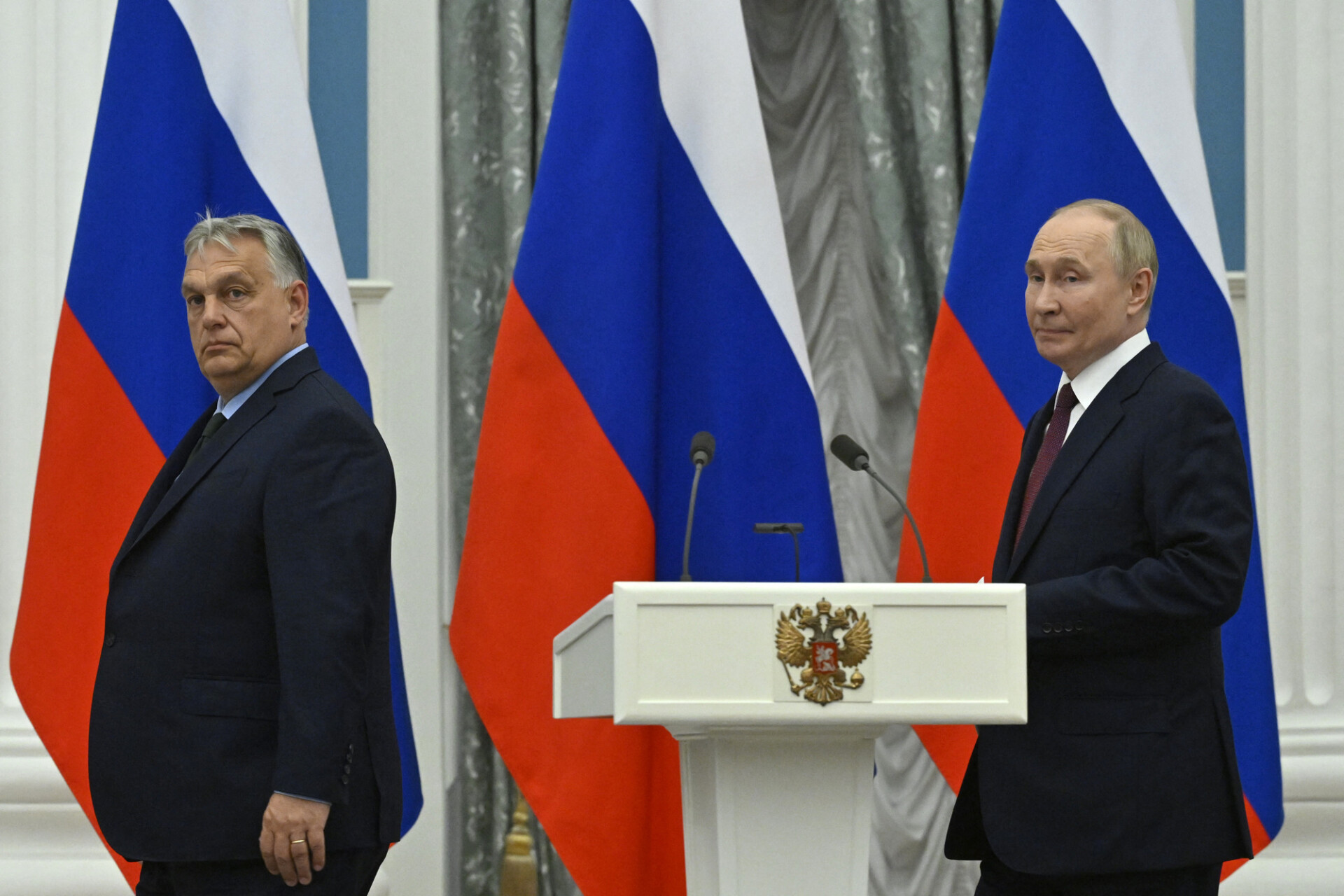The capitals of Europe’s former Communist bloc form the backdrop of many a Cold War espionage drama — and now, those cities are taking centre stage in a new era of spy games.
On Wednesday, the EU demanded that Hungary explain a controversial extension of its National Card immigration programme, which enables a simplified procedure for obtaining work permits, to Russian and Belarusian nationals. Speaking to an EU Parliament committee, EU Commissioner for Home Affairs Ylva Johansson said welcoming “citizens of two hostile states” raises “serious questions” and poses “a potential threat to our security”.
Hungarian Prime Minister Viktor Orbán, on the other hand, has framed the move as a necessary response to labour shortages, and his government has dismissed the EU’s response as “political hysteria”. Budapest downplays the National Card’s significance for EU security, pointing out that only 10 Russians and four Belarusians have thus far been admitted under the scheme.
These explanations carry an air of self-contradiction: the arrival of a combined 14 Russians and Belarusians is hardly likely to alleviate a national labour shortage. Indeed, following Orbán’s self-styled “peace mission” to Moscow earlier this summer, the scheme comes across more as a gesture of openness to Russia and Belarus, in keeping with his long-held view that economic cooperation with both West and East is vital to Hungarian and wider Central European interests.
Yet elsewhere in the EU, concerns about Russian espionage are growing. During her speech, Johansson recounted a litany of recent events relating to suspected Russian espionage: 10 arrests in Estonia in February, large-scale hacking attempts targeting Czech railways in March, arrests of German-Russian nationals photographing military facilities in April, nine arrests in Poland on suspicion of sabotage in May, and — most recently — threatened sabotage at military airbases in Germany. The major prisoner swap between Russia and Western nations last month further highlighted the dangers posed by a murky world of undercover agents.
In the UK, measures to tackle Russian espionage were unveiled by Rishi Sunak’s administration in May, including the expulsion of Russia’s defence attaché and new restrictions on Russian diplomatic visas. In March, former spy chief Richard Dearlove starkly warned that “we are engaged in a grey war with Russia.”
Hawkish European nations believe that if you give Russia an inch — as Hungary has done with its National Card scheme — the Kremlin will take a mile. Their fears are further fuelled by recent examples of corruption and espionage within the EU ranks, from the Qatar cash-for-influence scandal to allegations of Russian and Chinese espionage activity among MEPs and aides, which give the impression that EU institutions are ill-equipped to deal with the threat.
Yet, as the argument swirling around Hungary demonstrates, not all EU governments are of the same mind — and for some, openness to Russian citizens goes hand-in-hand with preserved economic ties with Moscow. A Czech move to limit Russian diplomats’ travel within the Schengen Zone, which Czech Foreign Minister Jan Lipavský claims would “narrow operational space for Russian agents”, is reportedly being blocked by Germany. One diplomat claimed that Berlin — like Budapest — has “the approach of returning to business as usual with Russia.”
The conundrum facing nations such as Hungary and Germany is that continued cooperation with Russia and heightened security against spy threats now appear to be irreconcilable aims. In this context, the EU’s self-contradictory approach may prove an Achilles’ Heel in the West’s security architecture.










Join the discussion
Join like minded readers that support our journalism by becoming a paid subscriber
To join the discussion in the comments, become a paid subscriber.
Join like minded readers that support our journalism, read unlimited articles and enjoy other subscriber-only benefits.
Subscribe